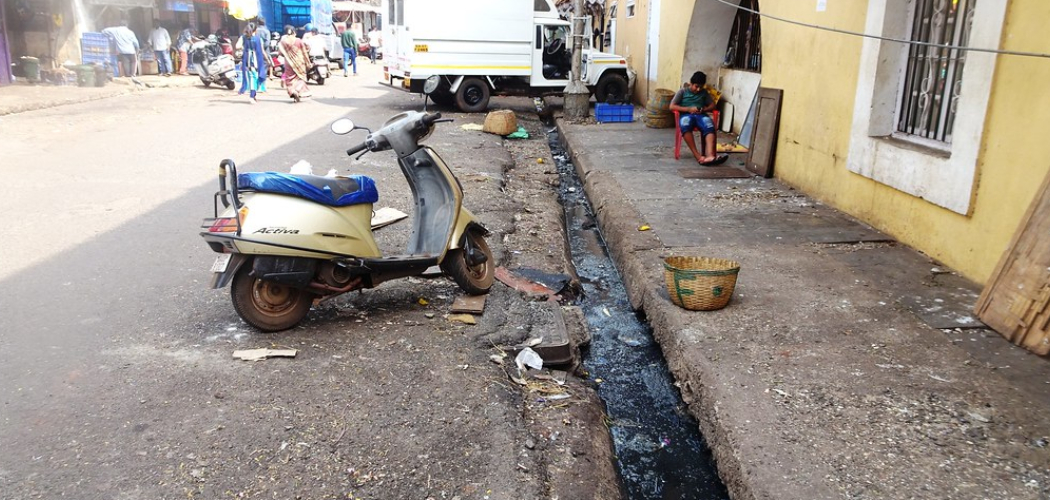Keeping your drains clean and odor-free is essential for maintaining a fresh and healthy home environment. Over time, food particles, soap scum, and hair can accumulate in the pipes, leading to unpleasant smells that waft up from the depths of your plumbing system.
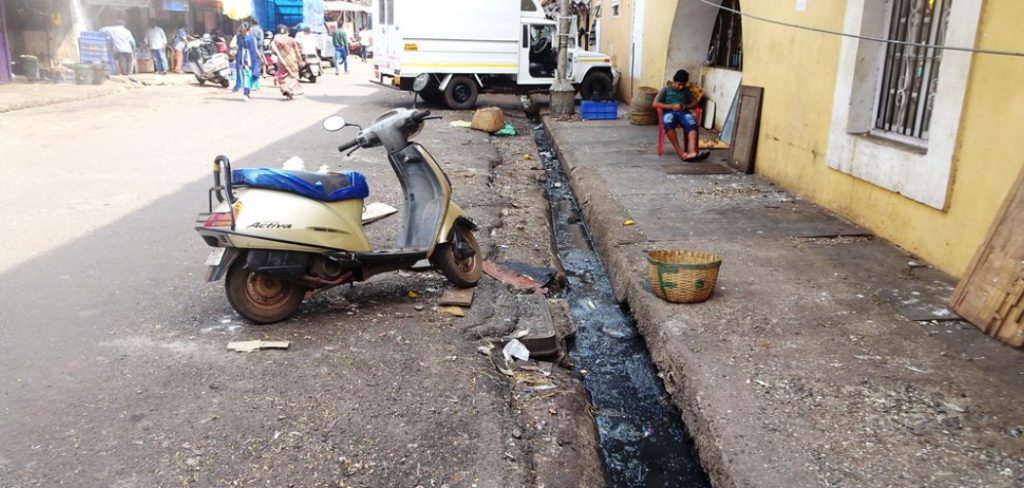
Not only can this foul odor be a constant nuisance, but it may also indicate a more serious underlying issue, such as a blockage or the growth of bacteria.
By learning how to effectively clean stinky drains, you can prevent these problems from escalating and ensure that your home remains a pleasant and welcoming place for family and guests alike. In this blogpost on how to clean stinky drains, we will discuss some simple yet effective methods for keeping your drains fresh and odor-free.
Needed Materials
- Baking Soda
- Vinegar
- Boiling Water
- Drain Brush or Plunger
- Rubber Gloves (Optional)
8 Step-by-step Guidelines on How to Clean Stinky Drains
Step 1: Remove Any Visible Debris
Before you begin the cleaning process, inspect the drain opening and remove any visible debris that may be obstructing water flow. This includes hair, food scraps, or large particles that can easily be lifted out.
Use rubber gloves to protect your hands and a pair of tweezers or pliers if needed to reach down into the drain. Clearing away these obstructions will allow the cleaning solution to work more effectively and help prevent further buildup.
Step 2: Pour Boiling Water Down the Drain
Boil a pot of water and carefully pour it down the drain. This hot water will help to loosen any remaining debris and flush it out of the pipes.
If you have a plastic or PVC pipe, be sure not to use boiling water as it can damage these materials.
Step 3: Use Baking Soda and Vinegar Solution
Mix equal parts baking soda and vinegar in a cup or bowl. The chemical reaction between these two ingredients creates a foaming action that helps to break down grease and grime accumulated in the pipes.
Quickly pour this solution down the drain and cover the opening with a plug or cloth to contain the foam. Let it sit for about 15 minutes.
Step 4: Rinse with Hot Water
After the baking soda and vinegar solution has had time to work, remove the cover or plug and pour another pot of hot water down the drain. This will help to flush away any remaining debris and neutralize any odors.
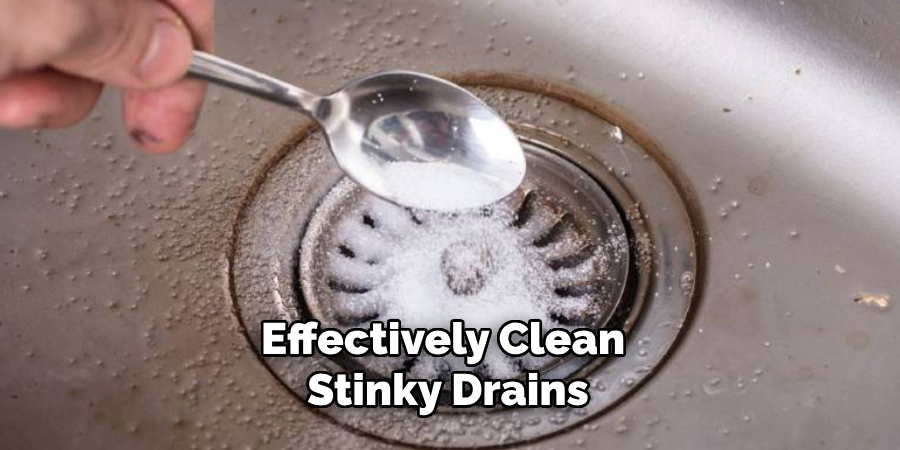
It’s important to note that this method is not recommended for use with commercial drain cleaning products, as their chemical ingredients may react badly with the baking soda and vinegar mixture.
Step 5: Use a Drain Brush or Plunger
If the above methods haven’t fully eliminated the stinky smell, you can try using a drain brush or plunger. These tools can help dislodge any stubborn debris or buildup in the pipes.
For a drain brush, insert it into the drain and twist it back and forth to loosen any clogs. For a plunger, cover the opening with the rubber cup and push up and down several times to create suction and clear out any blockages.
Step 6: Repeat the Baking Soda and Vinegar Solution
If the odor persists after completing the initial steps, you may need to repeat the baking soda and vinegar treatment for deeper cleaning. Pour another mixture of equal parts baking soda and vinegar down the drain, as done previously.
Cover the drain with a plug or cloth to trap the foam, and allow it to sit for another 15 to 20 minutes. This additional step can help reach any areas that were not addressed initially, tackling stubborn grime and ensuring your drain is thoroughly cleaned. Finish by rinsing with hot water to clear any remaining residue.
Step 7: Use a Commercial Drain Cleaner (As a Last Resort)
If none of the above methods have worked, you can try using a commercial drain cleaner as a last resort.
Be sure to carefully read and follow the instructions on the product label, as these cleaners can be harmful if not used correctly. Also, avoid using them in conjunction with any previously used cleaning solutions.
Step 8: Regular Maintenance
Prevention is always better than cure when it comes to stinky drains. Make a habit of regularly cleaning your drains and taking preventive measures, such as using drain covers or strainers to catch hair and food particles before they enter the pipes.
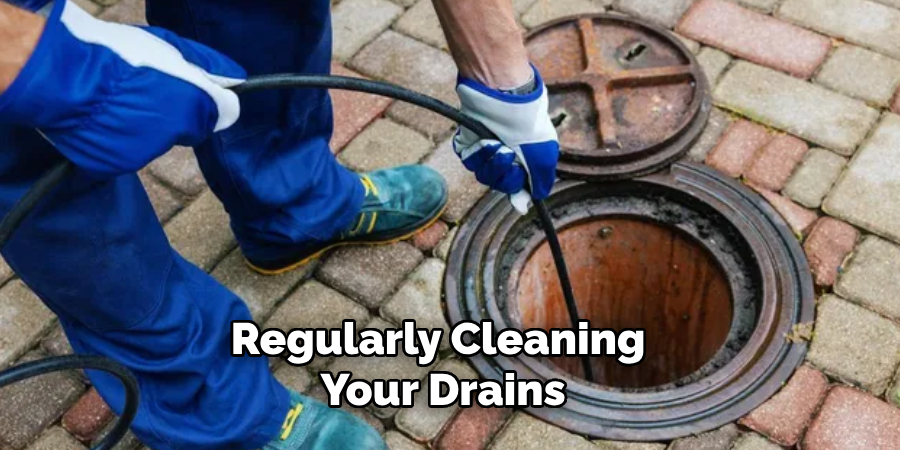
You can also pour boiling water down the drain once a week to help prevent buildup.
By following these simple steps on how to clean stinky drains, you can easily keep your drains clean and odor-free. Remember, regular maintenance and timely action are key to preventing stinky drains from becoming a recurring problem in your home.
Do You Need to Use Professionals?
While the steps outlined above are typically sufficient for resolving most common drain odors, there are certain circumstances where the expertise of a professional plumber may be necessary. If you’ve followed all the recommended cleaning methods and the smell still lingers, it could be indicative of a more serious plumbing issue such as a deep-seated blockage, sewer line problems, or pipe damage.
Professional plumbers have specialized tools and extensive knowledge to diagnose and treat such issues effectively. Additionally, if you notice recurring drain problems despite regular maintenance, it might be time to consult a professional to ensure there is no underlying structural issue. Their expertise can provide peace of mind and a long-term solution for maintaining fresh-smelling drains in your home.
How Much Does it Cost to Hire a Professional Plumber?
The cost of hiring a professional plumber can vary widely depending on several factors, including the complexity of the job, your location, and the plumber’s experience. On average, homeowners can expect to pay anywhere from $150 to $450 for a typical plumbing job, which may include tasks such as unclogging drains, repairing leaks, or installing new fixtures. More complex jobs that require extensive labor or specialized expertise, such as repairing a sewer line or fixing significant pipe damage, can cost upwards of $1,000 or more.
Additionally, some plumbers charge a flat rate for services, while others bill by the hour, typically ranging from $45 to $200 per hour. It’s important to obtain a detailed estimate before work begins to avoid any surprises. Keep in mind that emergency services, such as repairs needed during weekends or after-hours, can incur higher rates. Always verify the plumber’s credentials and ensure they are licensed and insured to guarantee quality and peace of mind.
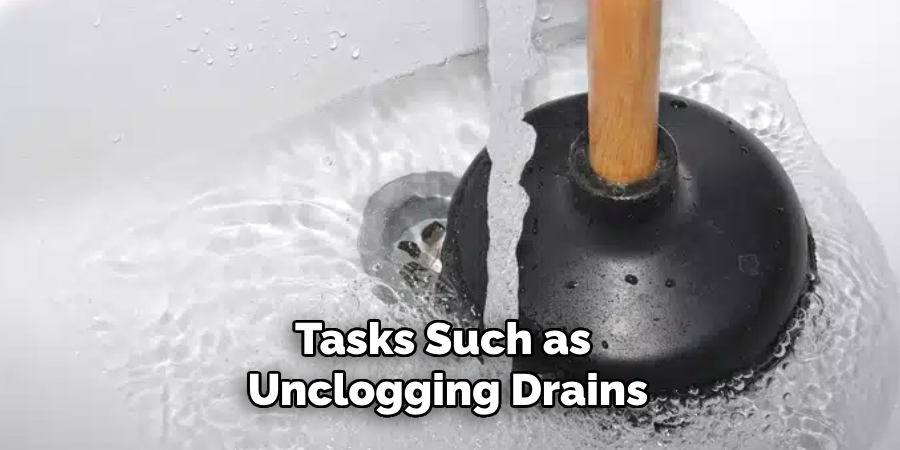
Frequently Asked Questions
Q: Can I Use Bleach to Clean My Stinky Drains?
A: While bleach may initially help to mask the smell, it is not an effective solution for cleaning stinky drains. Bleach can also be harmful and corrosive, causing damage to your pipes over time. The methods outlined above are safer and more effective for eliminating odors and cleaning your drains.
Q: How Often Should I Clean My Drains?
A: It is recommended to clean your drains at least once a month to prevent buildup and keep them smelling fresh. However, you may need to clean them more frequently if you notice any unpleasant odors or slow drainage.
Q: What Should I Do if the Stinky Smell Persists?
A: If none of the above methods work, it may be a sign of a more serious issue, such as a blockage or mold growth. In this case, it is best to seek professional help from a plumber to address the problem and prevent any further damage to your pipes. So, don’t hesitate to call for expert assistance if needed.
Q: Can I Use Boiling Water to Clean My Drains?
A: Yes, pouring boiling water down your drains once a week can help prevent buildup and keep them smelling fresh. However, if you have PVC pipes, be cautious as the high temperature of boiling water can cause damage over time. Instead, opt for hot water from the faucet or use a commercial drain cleaner specifically designed for PVC pipes. Always follow product instructions carefully.
Q: Is There a Way to Prevent Stinky Drains in the First Place?
A: Yes, there are several preventive measures you can take to avoid stinky drains. These include regularly cleaning your drains, using drain covers or strainers to catch hair and food particles, and avoiding pouring grease or oil down the drain. Maintaining good habits and taking timely action when needed can help keep your drains clean and odor-free. If problems persist despite regular maintenance, consult a professional for a thorough inspection of your plumbing system.
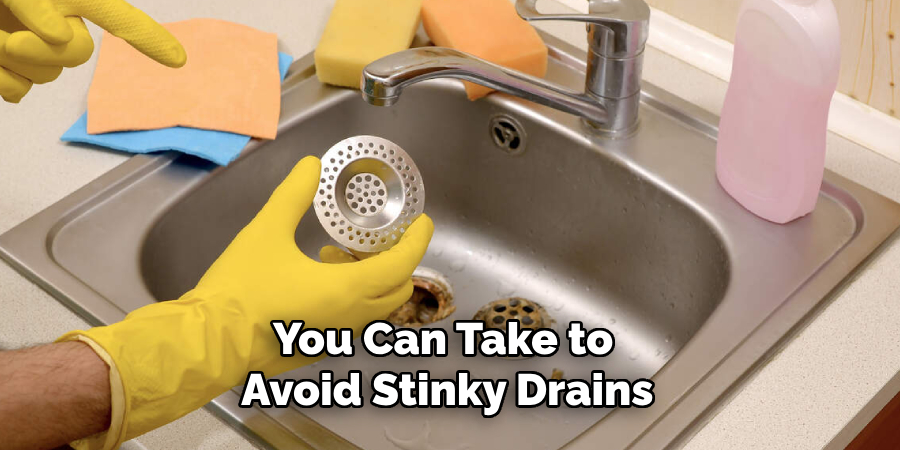
Conclusion
Stinky drains can be a frustrating issue, but with the right materials and techniques, it’s easy to keep them clean and odor-free. By following these steps on how to clean stinky drains, you can maintain a fresh and healthy home environment.
Remember, regular maintenance is key in preventing stubborn odors from developing in your drains. So, make it a part of your household cleaning routine and say goodbye to stinky drains for good!

